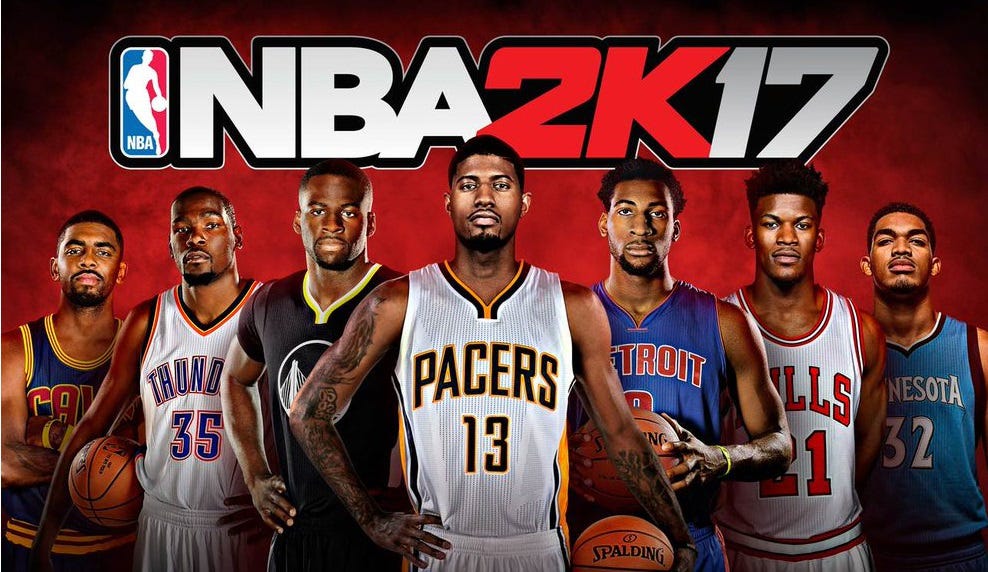Session B8: “Multimodal Hip-Hop and Transforming Writing Studies”
Presenters: Laquana Cooke, Regina Duthely, and Todd Craig
Review by Liana Clarke
The session had a theme of “wokeness” in our pedagogy as we, as instructors, find new ways to bring multimodality into the classroom through hip-hop songs, basketball video games, and composing using mixtapes as a framework. The presenters were passionate about the work they did in the classroom, presenting it to us as true practitioners. All three presentations were working with not only racial politics, but gender politics as well as they aimed to break down or reach out to other aspects than just race.
Regina Duthely began the panel with her study of hip hop and black lives movement working into the classroom to engage the students in culturally relevant issues and to encourage them to move beyond hegemonic modes of communication. One of the songs that she often turns to is Kendrick Lamar’s “Alright” as a protest anthem showing how music can operate as “the corner” and “kitchen table”—free sites of protest and resistance. By using technology to make music Duthely shows her students and showed us how mouths can be instruments of resistance.
The way that Duthely combined hip hop and multimodal composition serves as a counter narrative to those who say there’s a lack of people of color in digital spaces—and this was something that Duthely emphasized throughout her presentation. People of color can and do tell their own stories in these digital spaces through techniques that are very familiar to those of us in digital rhetoric: collaboration, remix, and interaction. Duthely pulled from scholars such as Michelle Wright and Carmen Kynard to argue against the digital divide and investigate ways in which hip-hop and the experiences of people of color are connected to multimodal composition, “creating a new” and encountering new ways of being.
 The multimodal and critical race themed continued with Laquana Cooke’s presentation. She gave us a break from music and provided a visually stimulating and fresh take on composition, taking a deeper look into video games, specifically the NBA2k. To be frank, a good chunk of it was based on statistics I couldn’t exactly wrap my head around, but as Cooke continued it got a bit easier to follow.
The multimodal and critical race themed continued with Laquana Cooke’s presentation. She gave us a break from music and provided a visually stimulating and fresh take on composition, taking a deeper look into video games, specifically the NBA2k. To be frank, a good chunk of it was based on statistics I couldn’t exactly wrap my head around, but as Cooke continued it got a bit easier to follow.
To begin with, Cooke took a look at the demographics of the players for the NBA2k—a basketball video game based on real players. In looking at the demographics, Cooke found that majority of the players of the game and the players on the court are people of color, but the coaches and developers are mostly white with only 3% of them being African American. Diversity is something that should be a key factor in game design and so Cooke took this to the classroom. She worked with basketball players at Albany High School and used the NBA2k to teach students coding in game design, getting them to rethink about the ways they approached composition in terms of inspiration, ideation, and implementation.
I remember a pivotal moment of Cooke’s presentation when her students coded a game themselves and she found that a lot of them based the players on their own personal stories. This tactic of having the youth who play the game create the game brought to light the assumptions that come from developers who are not representative of the gamers. The students’ stories became integral to the game they created and that was the most important lesson.
Todd Craig closed out the panel with his expertise in DJing both in and outside of the classroom and his passion for a good mixtape. He used the mixtape as a writing assignment with his students titled the “Playlist Project.” The goal was to immediately disrupts student’s relationships with academic writing through remix and remediation, incorporating readings from hip-hop artists talking about composing process. In doing so, he showed his student how the DJ is in a 21st century new media role as reader, writer, and literacy critic, pushing students to become DJs themselves as they did a rhetorical analysis of the playlists they created.
Craig’s mixtape project encouraged critical discussions of what the lyrics meant and how the songs worked together with the rationale often as an afterthought. Craig aimed to break students out of the mold of academic writing with outcomes to have students use audio sources to explain threads of logic and use DJ framework to think of sorting, sequencing, and organization of writing.
The Q&A portion of the presentation was even livelier with Cooke stepping up to the computer to add some background music and video stimulation as they answered the audience’s questions. First up was a stream of Lauryn Hill music videos as we discussed the role of hip-hop in the classroom and instructor’s duty to critically engage students and broaden their views of composition. This panel was successful in getting their students (even if not of color) to learn to look at things from a new perspective and that’s how I left the session feeling as well. The presenters made it clear that it doesn’t always go as planned, but that a good instructor knows when to take those moments as teachable moments and acknowledge what students are bringing to the table and encouraging them to find and use their voice.
